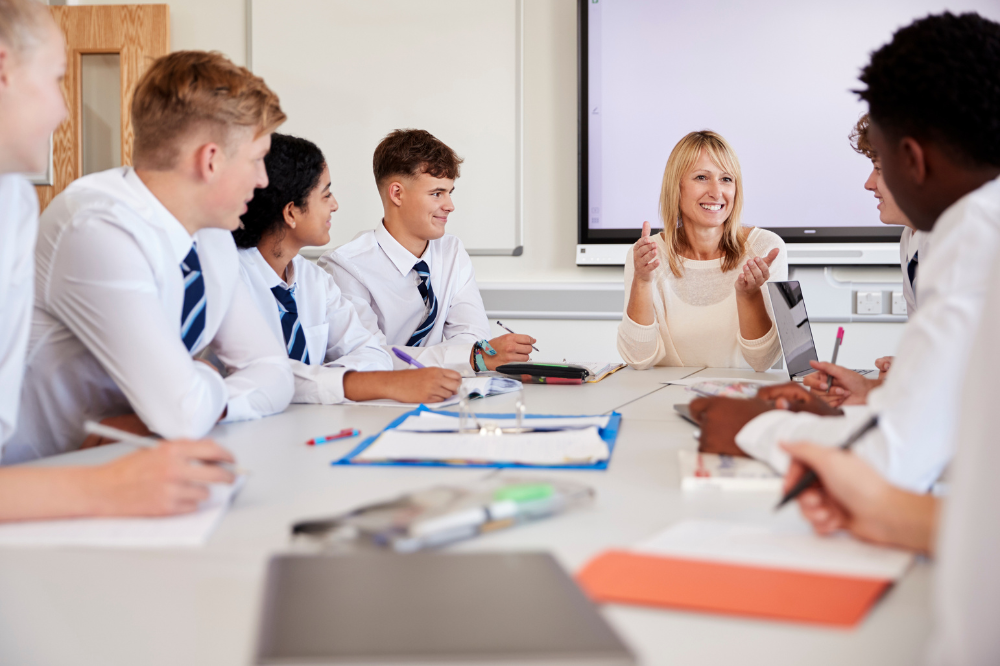
In 2023, one in 23 NSW public school students were suspended at least once, according to the NSW Department of Education’s ‘Full Year 2023 Suspensions & Expulsions Report’.
A growing body of research shows the cost of suspensions affect more than just the student, impacting on families, siblings, the school, other peers and teachers alike.
To address this, a program is offering young people not only a second chance, but an opportunity to reclaim their futures and reset.
The Y NSW Alternative Suspension Program, now in its 18th year, is designed to address behavioural challenges for suspended students aged 12-18 in a structured, compassionate environment.
Suspending kids ignores underlying issues
One parent who has seen the positive impact of the program firsthand is *Kylie, a single mum of two. After her son’s third suspension, Kylie felt out of options. Then, the school referred Timothy to Y NSW’s Alternative Suspension program.
“Simply suspending a child and sending them home doesn’t address the underlying issues – in fact for my son he saw it as a reward rather than a coercive measure as while he was given no access to a smartphone, the internet or laptop, he would just watch TV all day,” Kylie said.
“Timothy is academic, in fact he is in the top of his year in maths, but as a neurodivergent teen he struggles with motivation in remaining focused for subjects that aren’t his passion and then becomes disruptive and disobedient.”
Participating in the program, Timothy received guidance from youth workers on emotional regulation and social skills. The structure gave him a sense of achievement that allowed him to complete his schoolwork in a setting that better supported his learning difficulties.
“The program offered him tools to manage his emotions and strategies for emotional regulation and just as importantly, for the first time he felt that people outside of school genuinely cared and understood him,” Kylie said.
“After working with the Y, with the support of school he is better at managing his anger, his confidence and self-worth have grown, and he has matured. While there’s still a journey ahead, the program has been crucial in helping him build a stronger foundation for success.”
Transforming exclusion into an opportunity for growth
David Gonski said the program offers not only an alternative, but an essential resource in creating inclusive pathways for every student to succeed.
“This program exemplifies what’s possible when we invest in our youth. It can transform suspension from exclusion and marginalisation into an opportunity for growth, allowing students to overcome challenges with the support they need,” Gonski AC said.
“This program creates real opportunities for students who might otherwise be left behind, helping them build resilience and thrive in ways that the traditional approach to a suspension at home simply cannot.”
‘This program is essential’
The Y NSW’s youth workers who run the program work closely with referral support services including psychologists and alcohol and other drug counsellors.
Carlie Dodds is a Clinical Psychologist who has worked in youth mental health for close to 20 years and is hugely supportive of the Alternative Suspension program.
“This program is essential. Working with disadvantaged young people, I see that many of their behavioural challenges often emerge at school, where they spend most of their time,” Dodds said.
“Having a supportive space where they can work through these issues is crucial for guiding them back into education. School suspensions can have a negative impact on young people, often reinforcing a sense of rejection, making students feel like they’re 'not good enough’.”
Different schools approach suspension in different ways, but many families lack the resources to support a suspended student at home, said Dodds.
“The likelihood of a young person going home and dedicating themselves to schoolwork is extremely low. Instead, they’re often left unsupervised which can lead to increased screen time, gaming addiction or more serious choices such as substance use and even crime.”
Dodds said the Y NSW program will now expand thanks to partnerships with the Eureka Benevolent Foundation, St. George Foundation, Department of Social Services, Matana Foundation, and the Kimberley Foundation.
The support allows the program to continue its impactful work in Western Sydney and on the Central Coast for the next three years, undertake an independent evaluation, while also extending vital assistance to more young people in Camden and regional Broken Hill in NSW.
“Several students I’ve worked with have benefited from the Alternative Suspension program, and I hope more schools and parents become aware of it, so that more young people can receive the specialist support they really need to continue their education.”
*Kylie’s surname was not included to retain anonymity.


